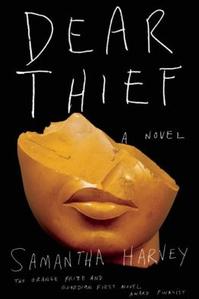

Glamorous, charismatic and selfish, Nina moved in with the narrator, enchanted her infant son, and began a love affair with her husband that ended the marriage. Then she disappeared, silently. It has been 18 years, and the narrator has no idea where Nina is, so she can't mail the letter and can't expect a response; can we call a story epistolary if the letter is never sent?
Conversational details of her work with the elderly, a young neighbor's crisis of faith and visits with her now-grown son give the expected conversational shape to her sprawling message, but she also punctuates her epistle with memories of their shared past, her love story with husband, Nick, and the emotional tug-of-war Nina inflicted on their marriage. Knowing the intended recipient will never read it, the narrator also imagines a life for her, scenes in which Nina does read the letter and defends her actions, or waves off the narrator's accusations with an amoral hand.
While the love triangle premise seems the perfect setup for a melodrama, Harvey never veers into the realm of histrionics. She carefully restricts the narrator's voice to a wry, witty clip that occasionally hints at the fury and grief still smoldering beneath the surface. One may even begin to think the narrator bears Nina surprisingly little ill will, only to then stumble across a sentence such as, "Sometimes I imagine, out of sheer playfulness, that I am writing this as a kind of defence for having murdered and buried you under the patio." Without outlining a single tantrum, Harvey still manages to convey the narrator's full range of emotions: the sting of betrayal, the philosophical musings of middle age and a continuing loneliness. Despite the years and pain separating them, this woman still expects Nina will show up when least expected, as was her habit, which seems both dreadful and desirable.
Harvey's engrossing missive may leave readers longing to put pen to paper and resurrect the lost art of handwritten letters--though one hopes to have fewer grievances than Nina's betrayed friend. --Jaclyn Fulwood, blogger at Infinite Reads
Shelf Talker: A long, old-fashioned letter from a middle-aged woman to the treacherous friend who wrecked her marriage years ago explores the many intricate facets of human relationships.

